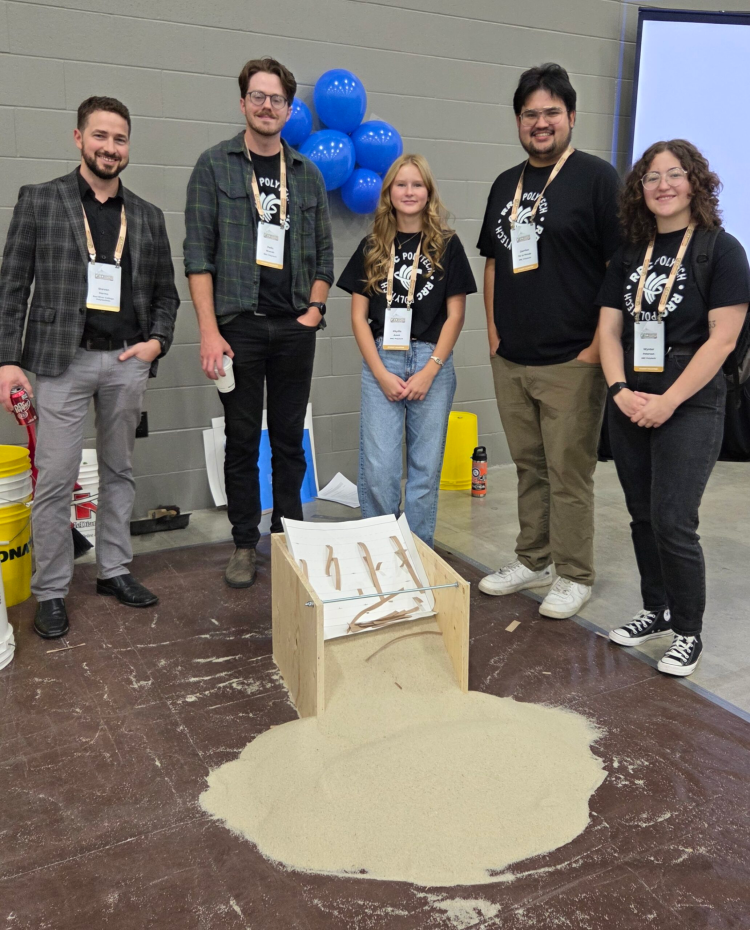A team of four RRC Polytech Civil Engineering Technology (CET) students made an impressive debut at the GEOWALL student competition during the 2025 GeoManitoba conference, earning third place among undergraduate and graduate teams from across Canada.

The team - made up of Wynter Peterson, Felix Brandt, Phyllis Arent, and Darrion De la Ronde - was tasked with designing and constructing a Mechanically Stabilized Earth (MSE) wall capable of supporting a load of 800 N (approximately 176 lbs). Despite being early in their academic journey and not yet formally trained in MSE wall design, the students took the initiative to study and prepare over the summer, dedicating personal time to learn the theory and practice.
"Over the summer, we went from knowing nothing about MSE walls to knowing enough to build a miniature wall," said Phyllis Arent. "But as much theory and practice we had, the competition taught us to think on the spot and to roll with the last-minute changes we weren't expecting. But especially it taught us that working together as a team is not only so rewarding, but a lot of fun."
Mechanically Stabilized Earth (MSE) walls use alternating layers of soil and specialized reinforcement - usually fabric, plastic, or steel strips - to allow soil to stand at steeper angles and support heavy loads.
In the Geowall competition, RRC Polytech students built a scaled-down version using paper materials, applying real-world soil mechanics principles to test how design choices like reinforcement spacing, wall connections, and soil compaction affect performance. This hands-on experience gave them valuable insight into how these structures behave and fail - knowledge that's essential for future engineers working with retaining walls and earthworks.
RRC Polytech instructor Steven Harms, who mentored the team, praised their dedication and said participating in competitions like this will give the students additional confidence for their careers.
"The team has been preparing since May. They started by learning the basic theory of MSE walls and spent weekends testing and refining their design. They were also working full-time in summer co-op positions, so their commitment was truly impressive," said Harms.
The competition, part of the Canadian Geotechnical Society's annual conference, offered students a chance to engage with industry professionals and peers from across the country.
"It's a great opportunity to develop technical skills, gain teamwork experience, and build professional networks," Harms added. "I'm proud of their third-place finish, but even more proud of their dedication and professionalism throughout the journey."
Arent also credited the polytechnic education model for the team's success.
"We don't think we would have been so prepared for the competition without all the hands-on experience we got in the lab. The breaks in-between learning to test our knowledge were really helpful to further our knowledge. The co-op terms RRC Polytech offers are a great opportunity for us to do exactly that. To further our knowledge with hands on experiences, and that was really important to all of us when looking for a place to pursue an education," she said. "We're especially grateful to Steven for spending part of his summer teaching us everything we know about MSE walls."
RRC Polytech's CET program is a three-year diploma that prepares students for careers in the design, construction, and maintenance of infrastructure projects. Students gain a strong foundation in engineering principles, surveying, materials testing, and project management, with a focus on practical, hands-on learning.













